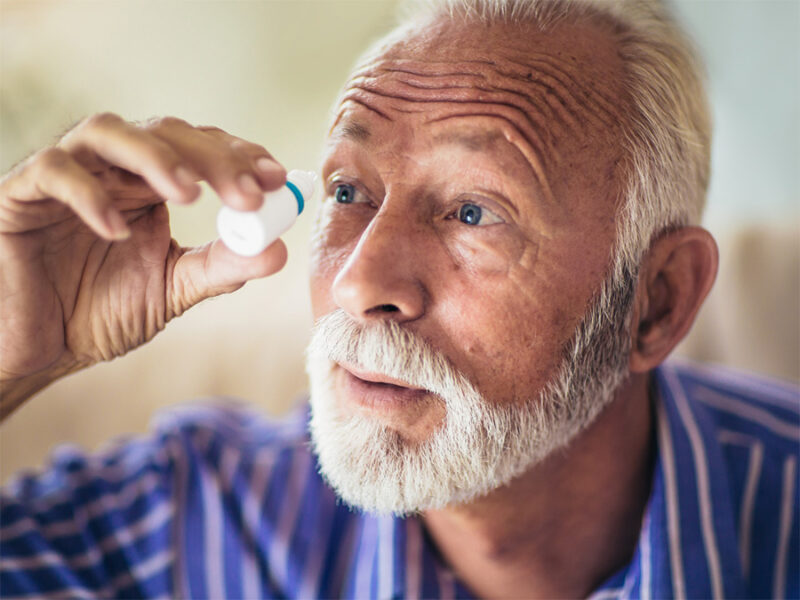Jan 8, 2025
Glaucoma: Ask an Expert

January is Glaucoma Month, and Fighting Blindness Canada connected with Dr. Delan Jinapriya, a glaucoma specialist and the medical director of the Galen Eye Institute, Queen’s University, and asked him to answer some common questions about glaucoma.
I use drops to control eye pressure, but I’m still showing damage. Can you explain why?
First, I would to see if there are other conditions? Do we have the right diagnosis of glaucoma? Do we have any blood flow issues—in other words, do we have any blood pressure issues that we need to manage, and are there any other conditions in the eye that can also be affecting this, like the cornea?
However, let’s just assume that what we’re dealing with here is only glaucoma, and the rest of the eye is normal. There’s no macular degeneration and there’s no blood vessel conditions like diabetes. Under those circumstances, what we have to ask ourselves is, do we have the correct diagnosis of glaucoma—for example narrow angle glaucoma versus open angle glaucoma.
If you’re trying to treat narrow angle glaucoma as if it is open angle glaucoma, you will see progression, because you’ll be treating the pressure that is read in the clinic, when the reality is you haven’t gotten to the heart of the matter, which is the fact that the drainage system isn’t open.

The other possibility, though, is medications. If your blood pressure is too well controlled, and you have low blood pressure, you’re at risk of not having enough blood flow to the very far periphery, to those very small vessels. So, sometimes what we’ll have to do is we’ll run a 24-hour blood pressure on people to see if it’s hitting a low point, which would typically happen when you’re sleeping. We may modify their medication to avoid the nighttime dips.
Finally, we’re all losing visual functioning over time, as the body ages.
I have glaucoma and am taking drops, but I was wondering if there’s anything else I can do?
You can look at ocular blood flow, which is going to be dependent upon your cardiovascular status and your lipid profile. The more cardio vascularly fit you are, the better. In general, it’s going to benefit not just for your eyes, but for the entirety of your body, including your brain. The other thing to think about is stress management and meditation.
A very interesting study out of Boston took a look at how people meditate. They took one group of people and had them do whatever they wanted for 20 minutes to relax. They took another group and did guided meditation with them for 20 minutes, and then they looked at their intraocular pressure before and after. After a month of doing this, and the group that did the guided meditation was significantly down relative to their baseline. The other group, who also took 20 minutes to do whatever they wanted to do to relax, they didn’t change their intraocular pressure.
So those are the two lifestyle factors that I would say are worth looking at.
Join the Fight!
Learn how your support is helping to bring a future without blindness into focus! Be the first to learn about the latest breakthroughs in vision research and events in your community by subscribing to our e-newsletter that lands in inboxes the beginning of each month.

